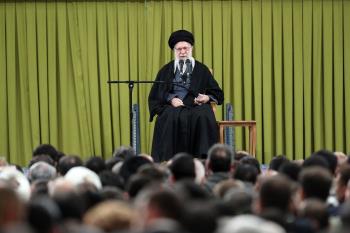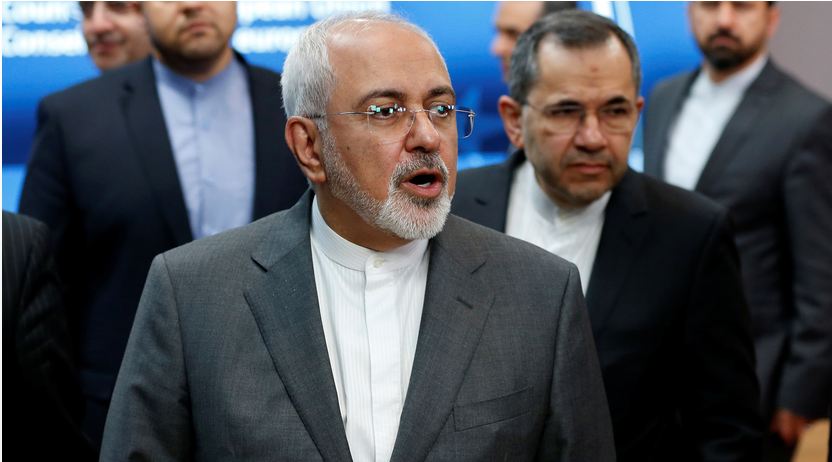Alwaght- Iran's Foreign Minister Mohammad Javad Zarif said Tehran will not negotiate with Washington as long as it sees no reliability on the US.
“I’m not ruling out the prospect of talks provided the necessary conditions for talks, and that is reliability,” Zarif said in an exclusive interview with The New Yorker, which was conducted in New York on Saturday and published on Monday.
“Reliability is different from trust. Reliability is that when you sign something you are bound by it,” the Iranian top diplomat noted. He then cited an old Latin idiom, Pacta sunt servanda, which means “treaties shall be complied with”, and described it as the basis of international relations.
“Otherwise everything will fall apart… We are waiting for some sense of realism,” Zarif added.
Iranian top diplomat's remarks echoed his comments among a small group of journalists in New York on Saturday, when he said, "We don’t believe that negotiations are about trust, but they are about reliability. And we do not find the current US policy reliable. That is, once they agree to something, we don’t know whether they stick to it.”
Back in May, Trump withdrew his country from the 2015 nuclear deal between Tehran and world powers, officially known as the Joint Comprehensive Plan of Action (JCPOA). Since then, the remaining parties to the deal, including France, Germany, the UK, Russia, and China, are trying to convince Tehran to remain in the multilateral agreement.
Last Monday, European Union’s Foreign Policy Chief Federica Mogherini announced, in a joint press conference with Zarif in New York, the E3+2 group of countries will establish a ‘special purpose vehicle’ to facilitate payments related to Iran’s exports as part of efforts to salvage the 2015 deal.
She later noted the EU’s initiative to facilitate payment to/from Iran could be in place before November, when the US is to re-impose the second batch of its anti-Iran sanctions.
Speaking to journalists in New York, Zarif send a message for Trump about his frequent complaints about the cost in blood and treasure of US interventions in the West Asia.
“Trump says, ‘We spent $7 trillion in the Middle East and got nowhere. So, why is he repeating the same mistakes? Is he doing anything different?”
“Now, he may not be spending that money. He may be asking Saudi Arabia to spend the money for it. But it is the same policy. … What got you into the misery that you’re in right now in the Middle East: … It is the policy that is the problem. And I believe the United States would be well off if it started re-examining the policy that got you here.”
Head of Iran's foreign policy, also criticized the US and its Persian Gulf allies for supporting militants and terrorists in Syria during a seven-year war, and Washington's support for Saudi-led coalition's aggression on Yemen that has killed thousands of civilians, mostly children and woman.
“I believe the problem is the United States failing to recognize the realities in our region. They are looking to contain Iran, to exclude Iran from this region. But what they are doing is creating more chaos, more extremism, more uncertainty, more instability. I mean, they should sit down and simply ask themselves, ‘What got us here?’”
Mohammad Javad Zarif said Iran had not categorically rejected the possibility of talks on regional issues, but said that such a negotiation, were it to take place, would favor Iran, with a relatively modest defense budget, over the US Persian Gulf allies that have bought billions of dollars in US weapons.
“Believe me, had we negotiated regional issues we would not be on the giving side. Those who have made mistakes in our region would be on the giving side. No one did us a favor by removing the regional issues from the table. We did them a favor because we wanted to resolve a big issue.”
“Had we talked about military equipment in the region, then they would have to stop pouring arms into our region,” Zarif said. “Because we spent, with everything, including manpower — a million-people-strong manpower — between $12 billion and $16 billion. Saudi Arabia only buys $60 billion-$70 billion of weapons that they don’t know how to use. The United Arab Emirates only buys $22 billion worth of weapons. They don’t have enough people to use. … The entire population is a million people.”
“So if we wanted to get into discussion about these issues, we would be on the demanding side, not on the answering side,” he said.
Asked about Israeli regime Premier's map of Iran’s alleged expanding presence in the region, Zarif started his response with a kind of joke.
“Have you seen that map with all the US bases around us?” Zarif said. And he quipped: “Why are these Iranians putting their country in the middle of all of our bases?”
“We are in our region,” Zarif, speaking more seriously, continued. “We have not invaded any country. We have not sent troops anywhere they were not asked. We have not bombed any country. We have not taken territory from any country.”
“We do not have our eye on anybody else’s territory, resources or people,” Zarif said. “Can Netanyahu make this same statement? … We will never use our missiles except in self-defense. Can he [Netanyahu] make this very simple statement?”



























